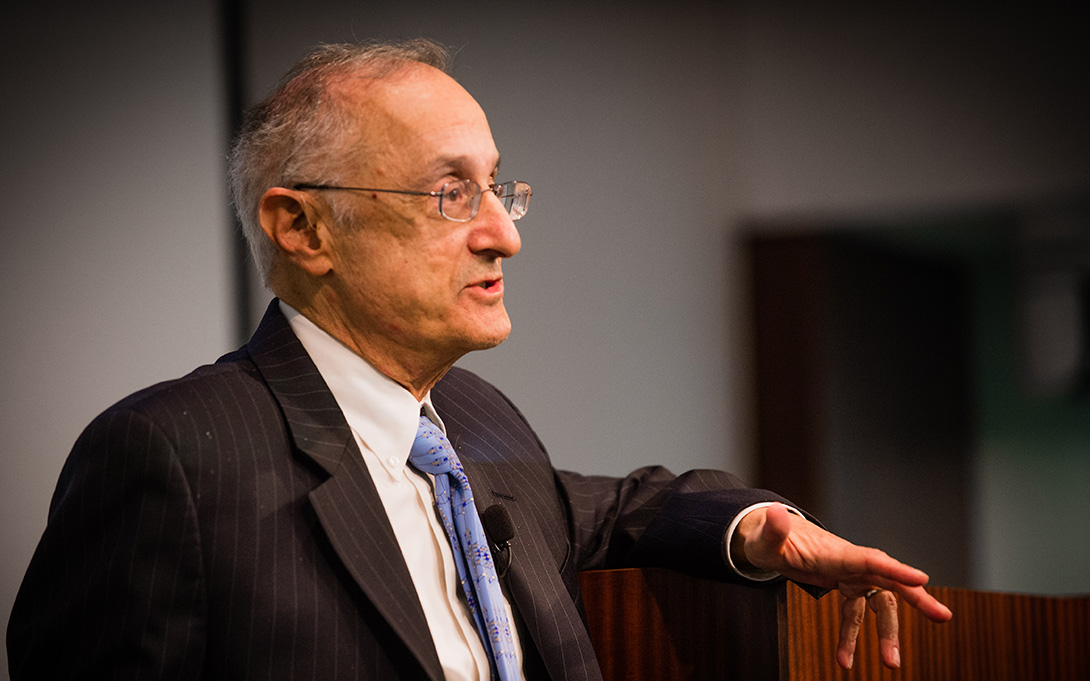
Ford School professor emeritus Robert Axelrod has had a 50-year career that has made him what some people have called “one of the most influential social scientists of his generation.”
After being recognized by President Kennedy for being a promising young scientist while in high school, Axelrod built a career dedicated to collaborating with business school professors, international relations scholars, political scientists, computer scientists, and even evolutionary biologists and cancer researchers. Fifty years later, he was honored by President Obama with the National Medal of Science, the nation’s highest honor for scientific achievement and leadership. Along the way, he received a MacArthur Prize Fellowship.
His newly-released autobiography, A Passion for Cooperation: Adventures of a Wide-Ranging Scientist (University of Michigan Press) reviews his interdisciplinary work, and also reveals his struggles to overcome failures and experience the joys of gaining new insights into how to achieve cooperation.
The book recounts Axelrod’s field work which remains relevant today, including talking with the leader of Hamas, the Prime Minister of Israel, and the Foreign Minister of Syria. The range of experience spans being hosted in Kazakhstan by senior Soviet retired generals and visiting China with well-connected policy advisors on issues of military aspects of cyber conflict.
His seminal 1984 book, The Evolution of Cooperation, explored how cooperation can emerge in a world of self-seeking egoists when there is no central authority to police their actions. The work is still referenced in the media on a regular basis, when discussing US-China relations (The Hill) or looking at The Power of Karma (Psychology Today).
Axelrod’s stories about the difficulties and rewards of interdisciplinary collaborations exemplify how his academic and practical work have enriched each other and demonstrated that opportunities for cooperation are much greater than generally thought.
Some initial praise for the book:
Steven Levitt, University of Chicago, author of Freakonomics: “I was a college student when I first encountered Robert Axelrod’s pathbreaking research on cooperation. It captured my imagination more fully than anything I had seen before, and indeed, more fully than just about anything I have seen since! Robert Axelrod is one of my heroes, so, for me, this book was a blessing. I soaked up its stories and insights. Rarely do I get to the end of a book and wish it would keep going.”
Robert D. Putnam, Harvard Kennedy School, author of Bowling Alone: “Bob Axelrod is among the most creative and influential social scientists of his generation. He has won virtually every major scholarly award in the various fields to which he has contributed and often helped to create. His autobiography gives us a unique inside-out view of how this remarkable mind works.”
—
This article is based on a release from The University of Michigan Press.
